
The Coffee that People Love so Matcha!
Who would have thought that tea and coffee would meld so well together? And yet, there’s no denying that matcha coffee is a delicious match made in heaven! Though matcha coffee is now a staple in cafes around the world, did you know that matcha actually has an incredible history that spans nearly a millennium and even has loads of amazing health benefits?
Matcha Tea’s Diverse Roots
Before we can really talk about matcha coffee, we need to learn about matcha tea. While making powdered tea – which is how matcha is produced – can be traced back to 12th century China, the history of brewing green tea harks back to 8th century China. Matcha’s popularity really exploded in Japan, though. So how did this Chinese tea-making practice make it to Japanese shores?
It was around the 12th century when a Japanese monk named Myoan Esai was visiting China to learn more about Buddhism, that he discovered how to make powdered matcha tea. Amazed and impressed, he brought this knowledge back to Japan. While in his home country, Esai often brewed matcha tea as a way to increase his Zen while also noticing that matcha tea provided him with increased focus while meditating. It was from these humble beginnings that matcha developed into the global phenomenon that it is today.
Making Magnificent Matcha
A practice that has spanned nearly a millennia, Matcha has been cultivated traditionally in Japan with 5 specifications:
- The vibrancy of their green hue
- The sweetness of their umami flavor
- How premium the vintage is
- How frothy the end product becomes
- How smooth the finish is when drinking
The main area for matcha cultivation in Japan is a place called Uji, which is situated in the southeast part of Kyoto. The tea here is grown throughout the year due to demand. A unique aspect to how matcha is cultivated here occurs when the tea leaves are about six weeks away from being harvested. During this period, they are shaded and provided with less and less sunlight over time so that the leaves produce even more chlorophyll and amino acids. The increased chlorophyll gives the matcha plants its signature green coloration, while the amino acids are the source of matcha’s amazing and delicate umami flavor.
When the plants are ready for harvesting, only the smallest, youngest, greenest, and most delicate ones are plucked. They are then steamed to preserve the all-important color and flavor before being dried in large cages with the help of heated blowers. The matcha is then de-leaved and de-stemmed. The leaves that actually make it through this intensive and selective process are called Tencha. The Tencha is then frozen until ready for the grinding process where they are turned into powder by huge stone wheels. Talk about a laborious process!
5 Surprising Health Benefits of Matcha
Matcha isn’t popular the world over just for its bright green color (though we definitely think the color is fabulous!) these unassuming tea leaves actually also pack loads of health benefits! Let’s take a look at 5 health benefits you may not have known that matcha possesses.
- Matcha is high in catechins, which is a plant compound that behaves like a natural form of antioxidant.
- Matcha may help with liver health
- Matcha can lead to higher brain function, alertness, and enhanced mental performance (just ask Myoan Esai!)
- The nutrients found in green teas like matcha may help improve heart health
- Matcha may speed up your metabolism and promote weight loss
How to Brew Delicious Matcha Coffee
Matcha, as an ingredient, is extremely versatile. Since the tea leaves are harvested in the dark to preserve the flavor and nutrients, matcha tends to be sweeter and more fragrant than other types of green tea. This is one of the reasons it pairs so well with coffee. With that in mind, here’s a refreshing, visually-stunning, delicious matcha coffee recipe that’ll kick your coffee craving while also giving you all of matcha’s amazing benefits!
Ingredients (serves 1)
- 1 teaspoon of matcha powder
- ½ teaspoon of granulated sugar
- 2-3 tablespoons of hot water (only enough to dissolve the matcha powder and sugar)
- 2 tablespoons of milk (or any milk substitute of your choice
- 1 shot of espresso
- ½ cup of Ice (cubes or crushed)
Method
- Brew a shot of espresso. Start by using a coffee scoop, measuring spoons, or a digital scale to measure out the right amount of beans. Utilize a burr grinder to get your beans down to a smooth consistency. Pack in your espresso grounds with a tamper and use an espresso machine to extract your shot of espresso. Feel free to use an espresso measuring glass if you want the measurement of espresso to be perfect.
- Add your matcha powder and sugar into a tall glass
- pour in 2-3 tablespoons of hot water and mix up the matcha powder and sugar until they’re totally dissolved
- Add half a cup of ice
- Next, add your milk
- Finally, add in your shot of espresso.
Note: if you want to retain the beautiful layering and coloring, do not mix the ingredients together and pour them in the exact order as detailed above.
Now You Know Why there’s no Match for Matcha!
From its ancient roots in China and Japan to the incredibly intricate growing and preparation method, making your matcha coffee or tea is a time-consuming and quality-driven process. This is why matcha coffee often commands a slightly higher premium in cafes than other types of coffee. However, if you’re able to get some matcha powder for your home, there’s no reason why you can’t impress your friends and family by brewing your own matcha coffee and impressing them with all your unmatched knowledge about this wonderful tea that pairs exquisitely well with coffee!


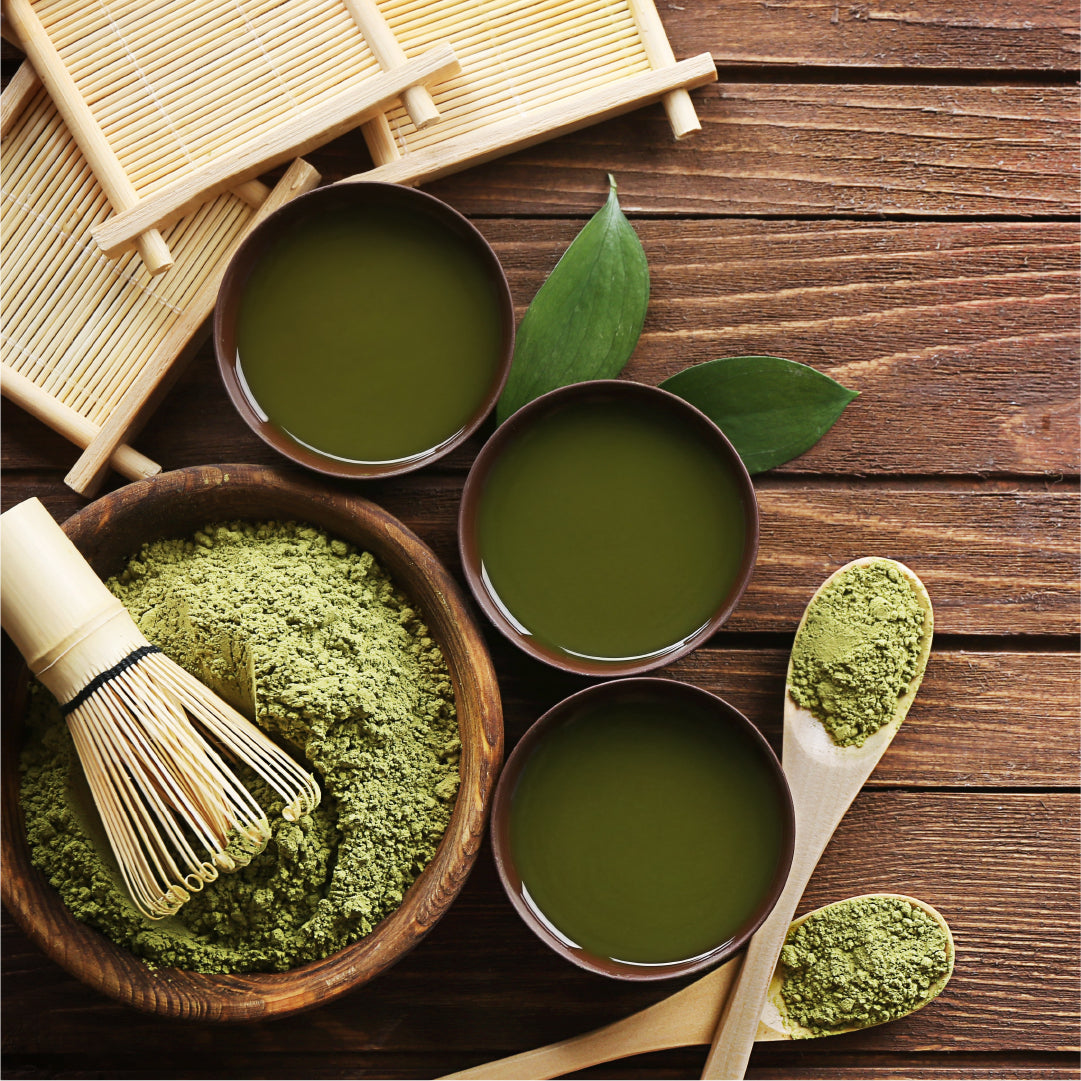
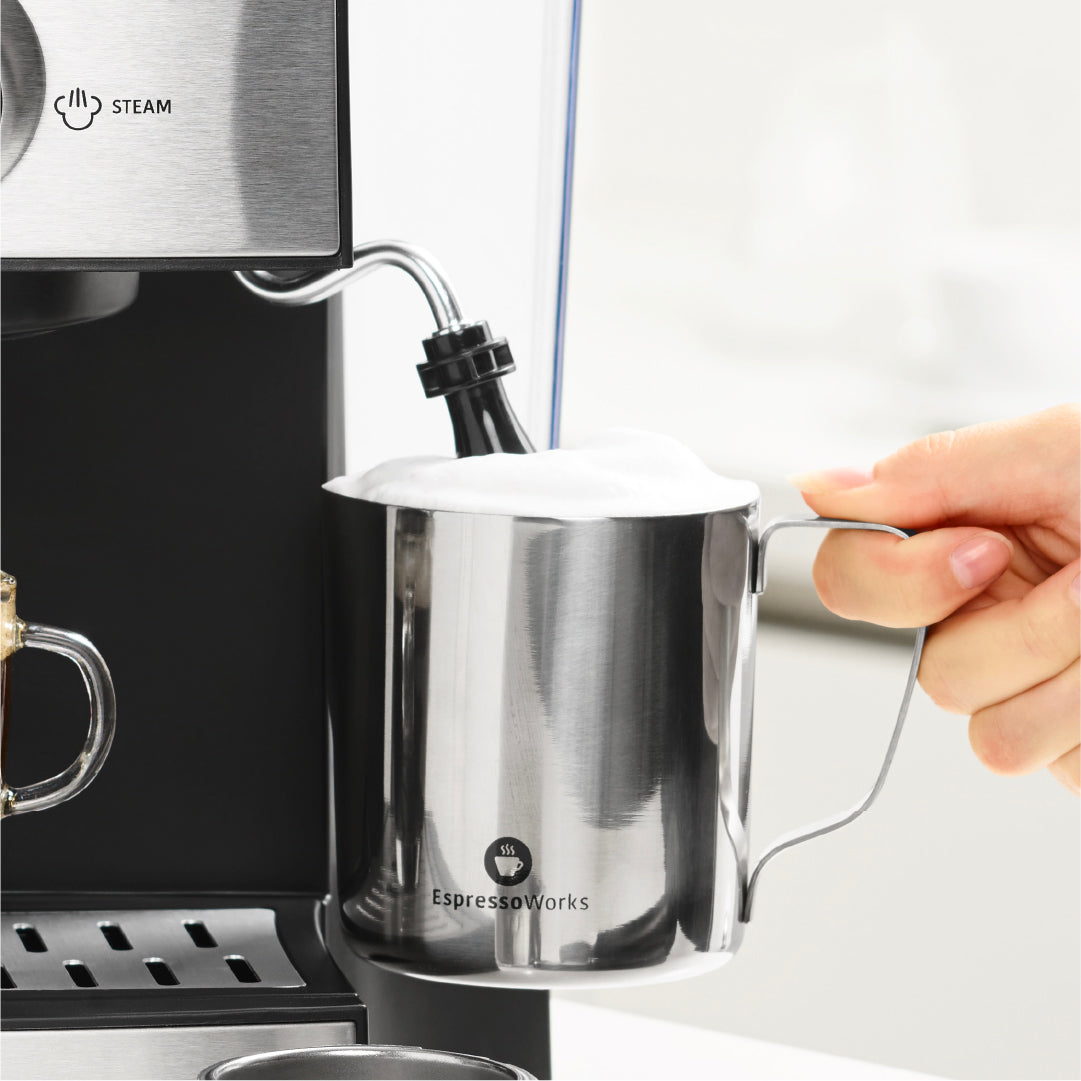

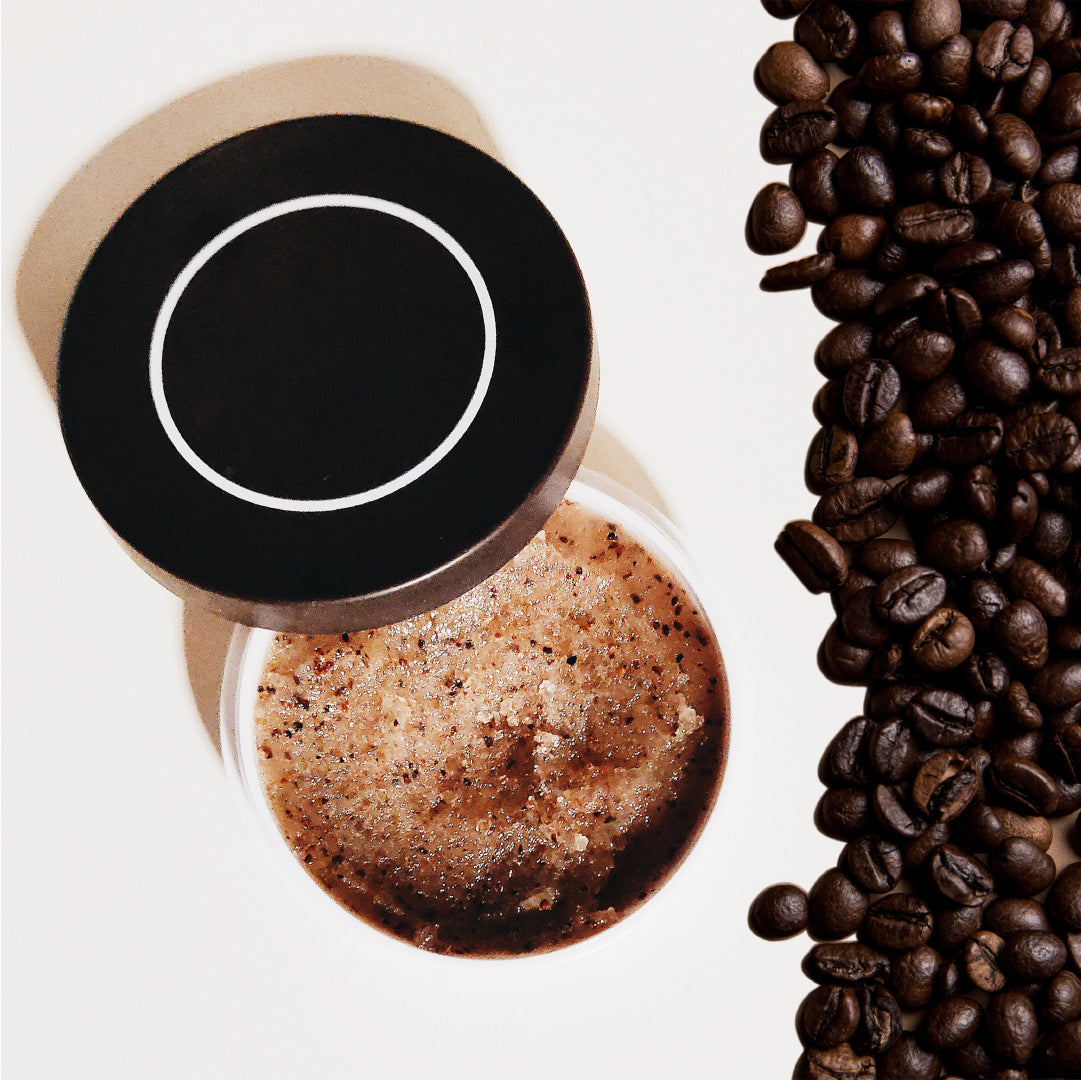

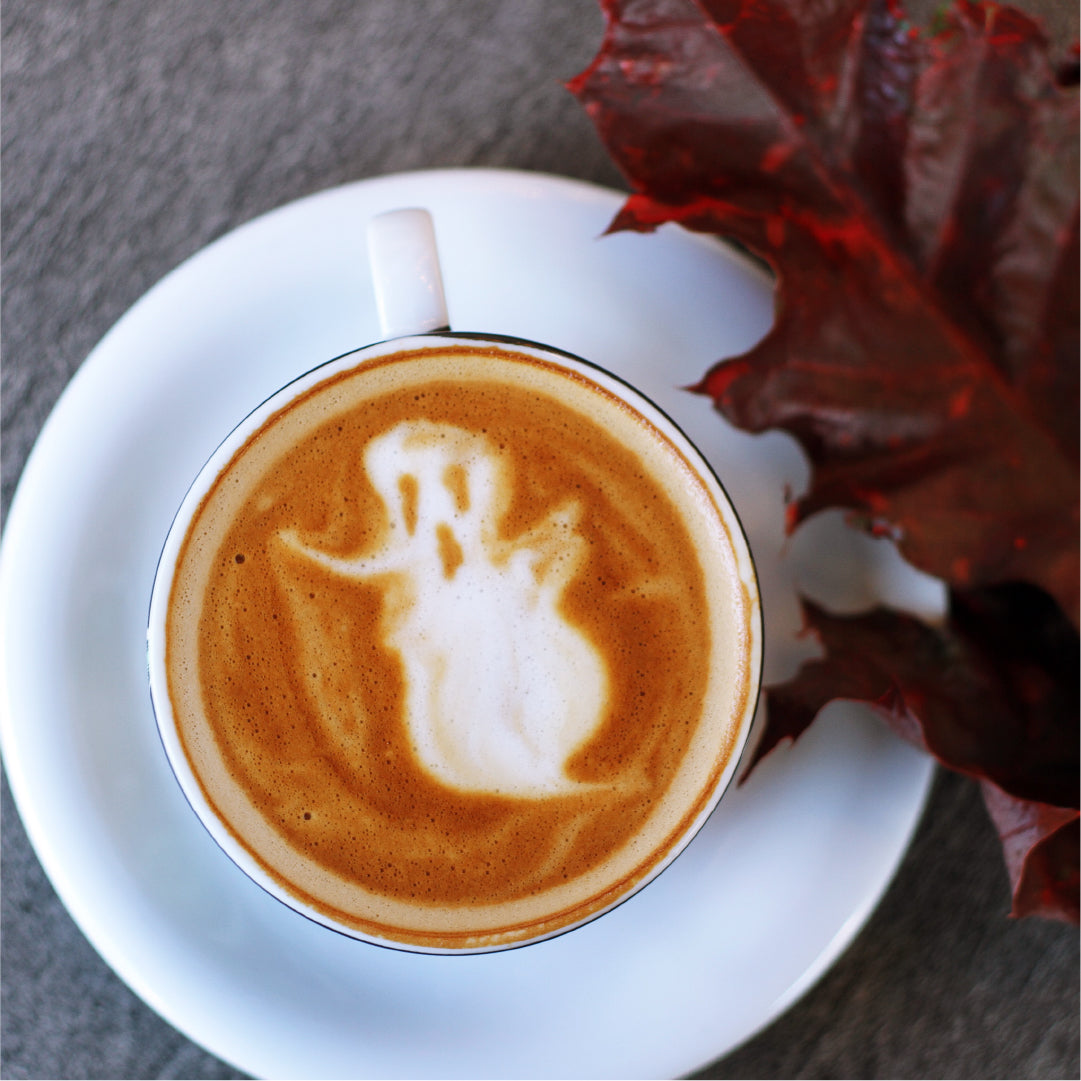
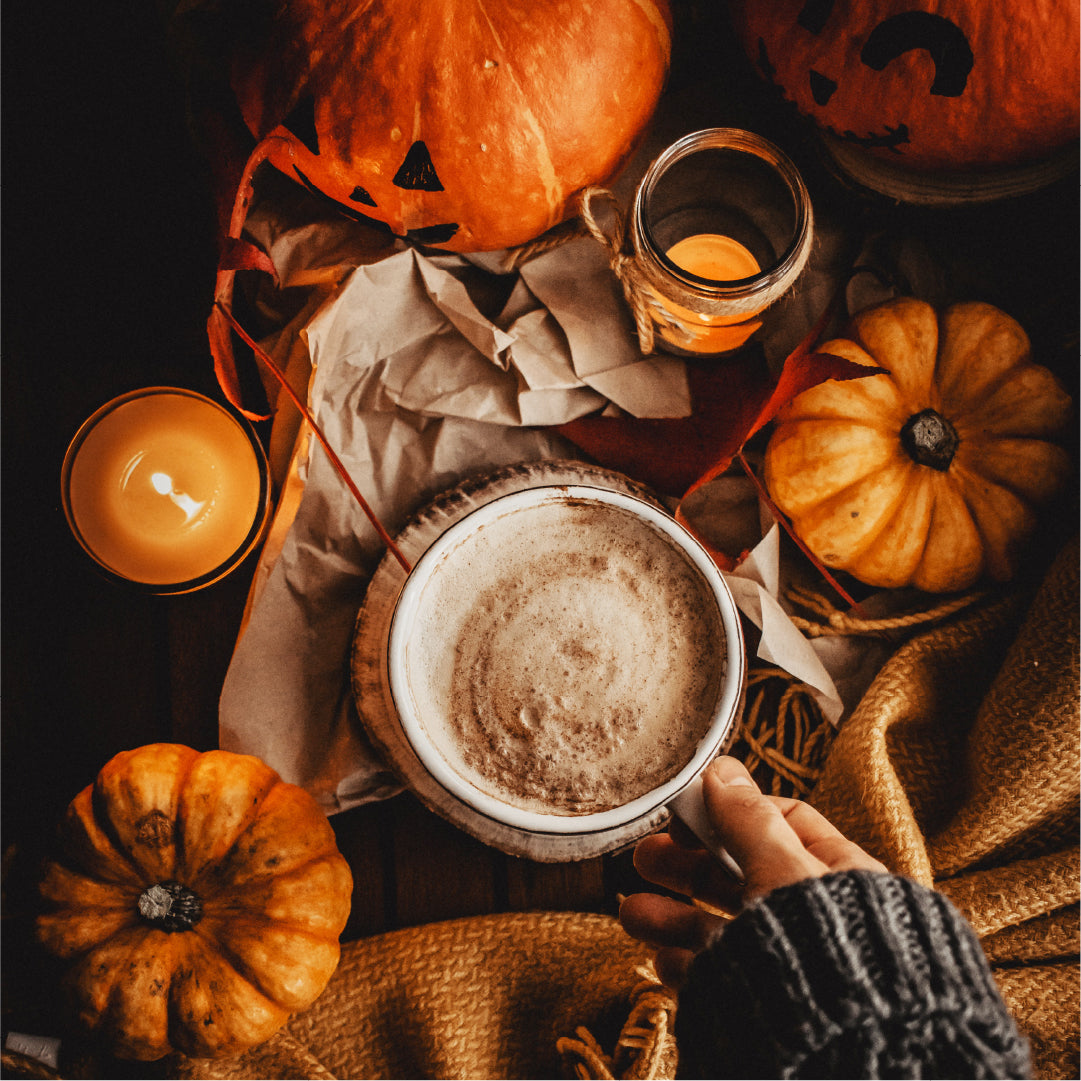
Share:
How To Thoroughly Clean & Descale Your EspressoWorks Espresso and Coffee Maker
Coffee Drinks from around the world - South America